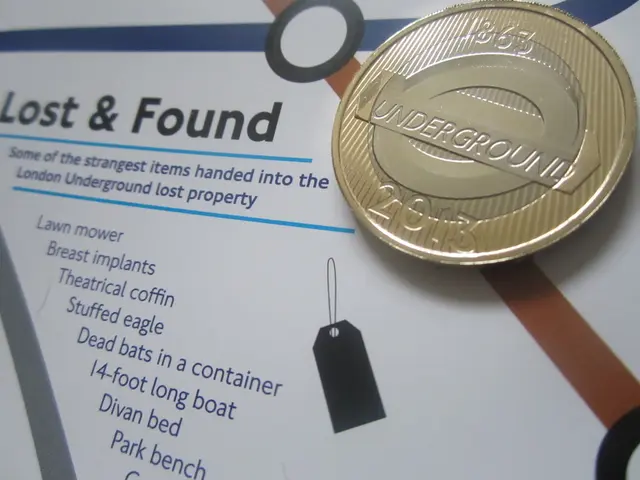Financial assault on ING raises concerns about potential vulnerabilities for PayPal, a significant player in the US market.
In the rapidly evolving world of digital payments, a new contender has emerged to challenge the dominance of PayPal. Wero, a pan-European digital wallet, is making waves by offering instant, seamless, account-to-account payments, all without the need for cards or IBANs [1][2][3].
Launched in 2024, Wero is the brainchild of the European Payments Initiative (EPI), a consortium of 14 major European banks, including Deutsche Bank [4]. The service, initially available in Germany, France, and Belgium, has already amassed a user base of around 40-42 million [2]. In its first three months, Wero processed €5 billion in peer-to-peer payment volume [2].
The key selling point of Wero is its focus on reducing costs for merchants, as it eliminates card processing fees [1][3]. This makes it an attractive option for businesses looking to cut down on payment-related expenses. For consumers, Wero offers instant payments via bank apps or its own app, providing a simple and secure alternative to traditional payment methods [2].
Wero's expansion plans include extending from P2P payments to eCommerce payments this year and point-of-sale payments in 2026, with an aim to integrate domestic European wallets to increase reach [2][4]. This growth is supported by major European banks, positioning Wero as a strong regional challenger to PayPal.
PayPal, with the WKN code A14R7U, remains the undisputed market leader in online payments [5]. However, it faces growing competition from wallet-based systems like Wero that leverage the SEPA real-time bank transfer infrastructure directly [3][5]. While PayPal enjoys established global brand recognition and broad acceptance online, it typically involves higher transaction fees and slower settlement relative to Wero’s instant transfers [3][5].
Lars Stoy, the CEO of ING Germany, emphasized the need for Europeans to work on their own payment systems when he announced the launch of Wero in August [6]. The ING group, with 40 million customers, plans to actively support Wero [7].
Despite the launch of Wero with ING, PayPal sees no existential threat in the growing digital payments market. With a strong market position, steadily increasing transaction volumes, and a clear strategy for expanding its services, PayPal is likely to benefit from the increasing importance of digital payments in the long run [8].
In conclusion, Wero is positioning itself as a European-focused, bank-backed, instant payments wallet aimed at reducing costs and providing seamless account-based payments across multiple European countries. While PayPal remains significant in Europe, it faces increasing pressure from Wero’s pan-European network and local trust advantages. This competition is set to reshape the digital payments landscape in Europe, offering exciting opportunities for both consumers and businesses.
References: [1] https://www.ing.com/newsroom/press-releases/2024/ing-and-wero-launch-digital-wallet-in-germany [2] https://www.wero.com/en/about-us [3] https://www.reuters.com/business/ing-launches-digital-wallet-wero-germany-2024-08-01/ [4] https://www.europeanpaymentsinitiative.com/ [5] https://www.paypal.com/uk/webapps/mpp/home [6] https://www.ing.com/newsroom/speeches/2024/ing-germany-ceo-lars-stoys-speech-at-the-annual-bank-day [7] https://www.ing.com/newsroom/press-releases/2024/ing-group-to-support-wero-digital-wallet [8] https://www.paypal.com/about/news/press/2024/q3-earnings-release/
- Businesses in Europe may find Wero, a bank-backed digital wallet, advantageous due to its focus on reducing costs for merchants by eliminating card processing fees, offering a less expensive alternative to traditional payment methods.
- In the realm of technology, Wero aims to expand its services from peer-to-peer payments to eCommerce and point-of-sale payments, leveraging SEPA real-time bank transfer infrastructure to challenge the dominance of businesses like PayPal in the digital payments sector.




